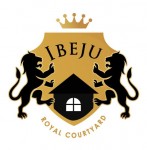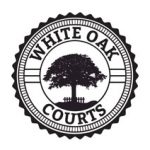Proven Tips on how to be Successful in Land Banking? A Complete Guide
A great number of people will always say this, “If only I knew then, what I do now”:
A common expression, that is often all too true when it comes to investing in real estate: especially land banking.
I am sure most people would love to have bought as much real estate as possible, 5-10 years ago,
had they known that investments made would be worth double or even triple today.
Well, there’s no better time to buy land and wait than now, as long as it is well located,
the likelihood of banking (profiting) is very high.
Thus making it one of the safest ways to store money and increase wealth (better than putting money in the bank!)
Land banking is a real estate investment strategy that has increasingly become popular,
particularly in the emerging markets of Africa such as Nigeria.
This article aims to enlighten you on the how, why and where of land banking in Nigeria.
What is land banking?
Land banking is the process of acquiring future real estate development sites at today’s prices.
Today’s prices are foreseen to be lower than what they will be in the future. Accordingly,
investors hope to profit by selling their already secured land for greater profits down the line.
There are many large real estate development companies that engage in land banking.
These companies buy vacant land, farms and other greenfield sites to add to their existing portfolios.
These portfolios can be considered as their “bank”.
This practice enables developers to have a ready stock of land for any future property developments.
Depending on their goals, developers may proceed to develop their lands somewhat,
for example building up the infrastructure, so roads, electricity and water.
They may also seek governmental approval to divide the land into smaller chunks
and sell them to individuals as estate plots.
Ultimately the land works like money in the bank and liquidity is
created by dividing it into smaller units and selling them on to generate income.
This strategy has enabled many developers to strike it rich,
especially in locations such as Abuja, where real estate prices have risen considerably over the years.
This again reiterates the point made in the introduction that location is
the most important aspect to consider before making an investment.
It is important to note that land banking is an investment strategy open
not just to large property development companies, but can also be done by smaller private investors.
The only difference is, that smaller investors would be acquiring smaller parcels of land:
due to obvious capital constraints.
Agricultural land banking
The previous definition of land banking was primarily focused on the concept
of the expansion or development of cities and other urban areas at the expense of rural places.
Agricultural land banking is another form practised in Nigeria.
This is the securing of raw virgin land that has been deemed appropriate for farming.
This suitability is based on the land’s topography, soil structure and climate.
Often buyers do not intend to farm themselves or lease out to a farmer, rather the land sits in the “bank”.
Agricultural land banks are often purchased at reduced prices as these lands
are usually sited far away from cities and the infrastructure that can be found in them.
By investing in these agricultural lands investors hope that due to the lands’
ability to produce food, required infrastructure such as roads will develop over time.
This allows the land to be farmed more productively hence increasing its value.
Investors may also profit from the expansion of urban areas toward these farmlands,
potentially being able to change the zoning from agricultural to either commercial or residential.
Why land banking makes for a good investment
Over the long run, land values are always going up: this is true globally
You can decide to make improvements to the land: which will make it more valuable
The land is relatively abundant and thus cheap: especially in developing countries like Nigeria
The land is easier to manage than built-up properties: no utility fees, no tenant problems etc.
The land is a safe investment that will always be in demand for one reason or another
Where to land bank in Nigeria
The most important thing you need to consider before buying is the “where”:
location, location, location is of the utmost importance.
There is no point in buying land where you will find it very difficult
to sell in the future, regardless of how cheap it is (unless you are a seasoned
an investor with a specific strategy in place). Consequently,
it is always recommended to buy near developing cities in order to maximize
the return on investment in the shortest possible time.
Lagos is one of the fastest developing cities not just in Nigeria but worldwide,
making locations close to the city great places to invest. Additionally,
Lagos has both agricultural and more urban land available: both can be purchased and land banked with.
Lagos’ outskirts like Ibeju Lekki, Epe and Ikorodu among others offer great land banking opportunities.
Just buy at today’s low prices and wait until development reaches these areas before selling.
Also, you may want to read: Reasons you must buy lands from a newly launched Estate Properties – (Urgently)
Final thoughts
With regards to real estate investing, investors often utilize only one of two strategies:
Buying a property and flipping it quickly
Buying a property to bring in passive income: rental yield
Land banking is a great alternative investment strategy:
specifically for investors that just want to invest, wait and forget.
Land almost always appreciates in value and is relatively cheap to acquire in Nigeria.
EUC Homes is arguably the best place to land bank in the country.
Simply buy some plots near a soon to be developed district, wait and bank (profit).































